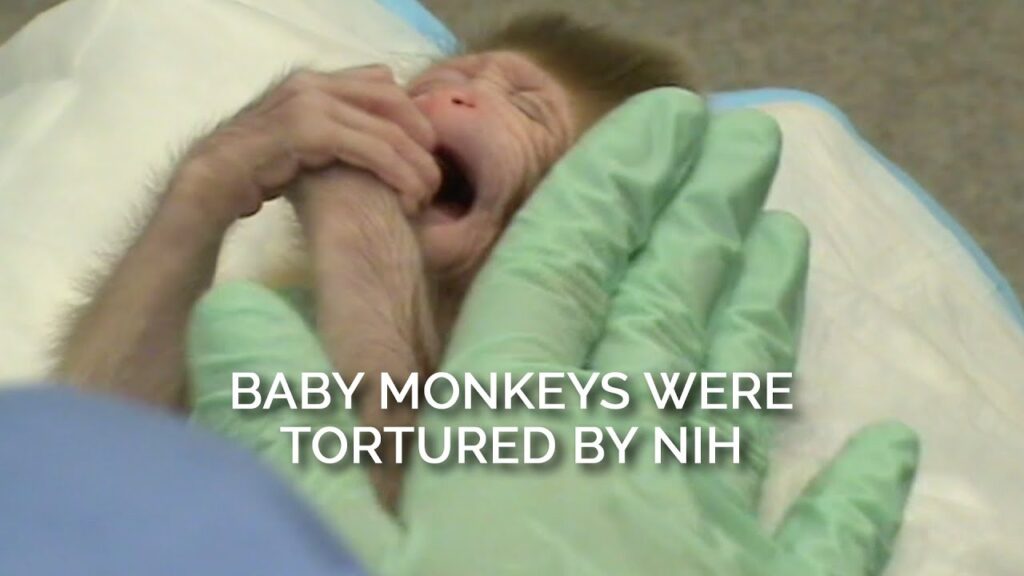
According to investigative reports, baby monkeys were taken from their mothers shortly after birth, an act that immediately caused severe psychological distress. Monkeys, like humans, depend deeply on the bond with their mothers during infancy. Being torn away from that essential connection left the infants frightened, isolated, and emotionally scarred. What followed was even more disturbing.
The babies were deliberately exposed to conditions meant to induce fear, anxiety, and even depression. Some experiments involved confining them in small cages, exposing them to artificial stressors such as loud noises, and depriving them of comfort or companionship. Others were subjected to “maternal deprivation studies,” where researchers observed how the lack of nurturing impacted their psychological development. Critics argued that these studies inflicted immense suffering without yielding meaningful medical breakthroughs.
Videos and documentation from these laboratories showed scenes that many described as torture. Baby monkeys cried, clung desperately to cloth dolls in place of their mothers, and displayed signs of extreme distress such as self-harm and rocking behavior. Animal rights organizations quickly condemned the NIH, saying the experiments were not only cruel but outdated, relying on theories that had already been thoroughly studied decades ago.
The public outcry forced a difficult question: is the suffering of intelligent, emotionally complex animals ever justified in the name of science? Supporters of animal testing argued that primates are biologically similar to humans, making them valuable for research into psychiatric and neurological disorders. However, opponents countered that such research could be conducted using modern, non-animal alternatives like computer modeling, brain imaging, and human-based clinical studies.
The scandal placed the NIH under immense scrutiny, with activists demanding an immediate end to primate research and a transition toward humane, innovative methods. Lawmakers were pressured to intervene, while advocacy groups organized protests, petitions, and awareness campaigns to push for reforms. Some victories were achieved: certain labs were closed, and funding for controversial studies was reduced. Yet, many argue that progress has been too slow, and baby monkeys—and other animals—remain trapped in a cycle of suffering.
Beyond the politics and policies, the story of these baby monkeys is a sobering reminder of the moral responsibilities humans bear toward other living beings. Monkeys are highly intelligent, capable of forming deep emotional bonds, and suffering in ways not unlike humans. Their cries in the laboratory were not just animal sounds—they were expressions of pain, fear, and longing.
The controversy over NIH’s treatment of baby monkeys is far from resolved. But one thing is certain: their suffering has forced society to look harder at the ethical cost of scientific progress. For many, it has become a rallying cry to rethink how we balance the pursuit of knowledge with compassion for the creatures who share our world.


